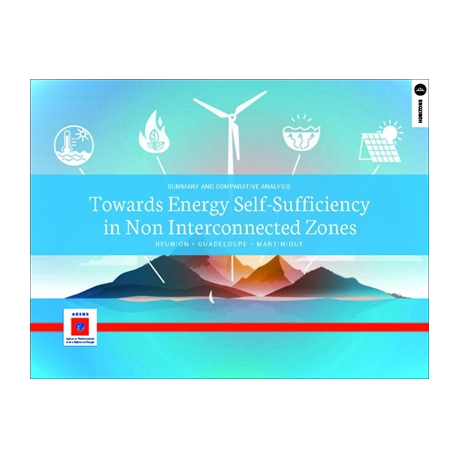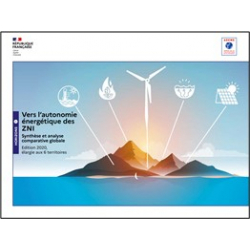 Agrandir l'image
Agrandir l'image
Towards Energy Self-Sufficiency in Non Interconnected Zones
Summary and comparative analysis Réunion, Guadeloupe et Martinique
010769-b
Neuf
ADEME has conducted a study on the potential of energy self-sufficiency for a number of France's overseas' territories. This summary presents the results for the islands Réunion, Guadeloupe and Martinique. Today, these islands are strongly depending on energy imports. The study, based on five scenarios, has demonstrated that it will[…] Plus de détails
Fiche technique
| Auteurs | ADEME |
| Public(s) | Collectivités territoriales |
| Administration publique | |
| Thématique | Energies renouvelables, réseaux et stockage |
| Collection | Horizons |
| Éditeur(s) | ADEME |
| Date d'édition | 2019/01 |
| Référence Ademe | 010769-b |
| EAN format numérique | 9791029714825 |
| Nb. de pages | 19 P |
| Format | pdf/A4 |
| Langue | EN |
| Périmètre de publication | National |
En savoir plus
ADEME has conducted a study on the potential of energy self-sufficiency for a number of France's overseas' territories. This summary presents the results for the islands Réunion, Guadeloupe and Martinique. Today, these islands are strongly depending on energy imports. The study, based on five scenarios, has demonstrated that it will be technically feasible to replace the current energy mix by a 100% REN mix, shortly after 2030. The Energy Transition for Green Growth law has set as an objective to achieve energy self-sufficiency in overseas departments and regions by 2030. ADEME wished to conduct a study to assess the technical, organisational and economic implications that a highly renewable energy electricity mix would have on territories that are not interconnected by 2030. Electricity, which allows local production based on renewable energies and is suitable for multiple uses, substituting for imported fossil fuels could play a predominant role in achieving this ambitious objective of energy self-sufficiency. At a time when France's oversees territories are working on revising their Multi-Year Energy Programs, this study seeks to be a tool to assist local authorities in decision making, offering points for actors to think about while opening up the range of possible outcomes.



